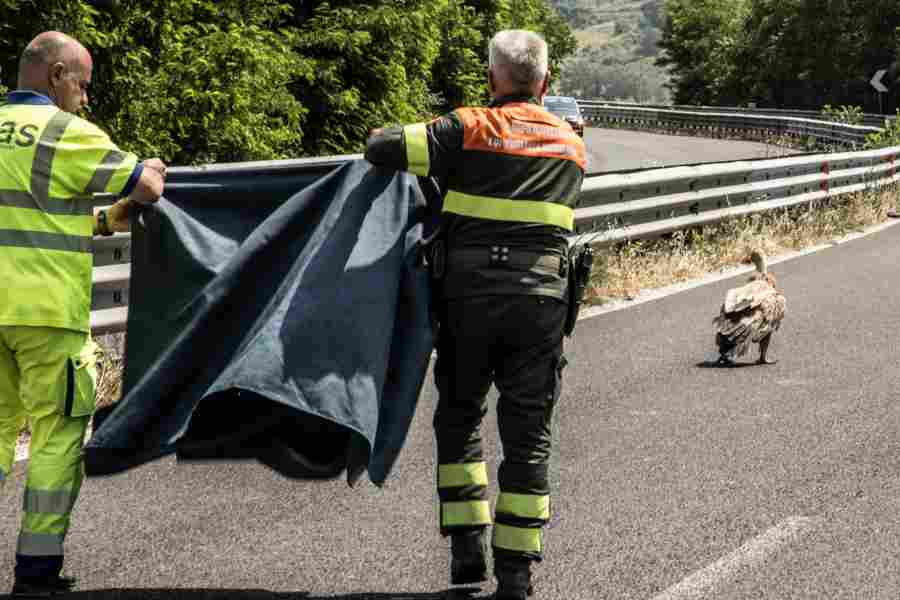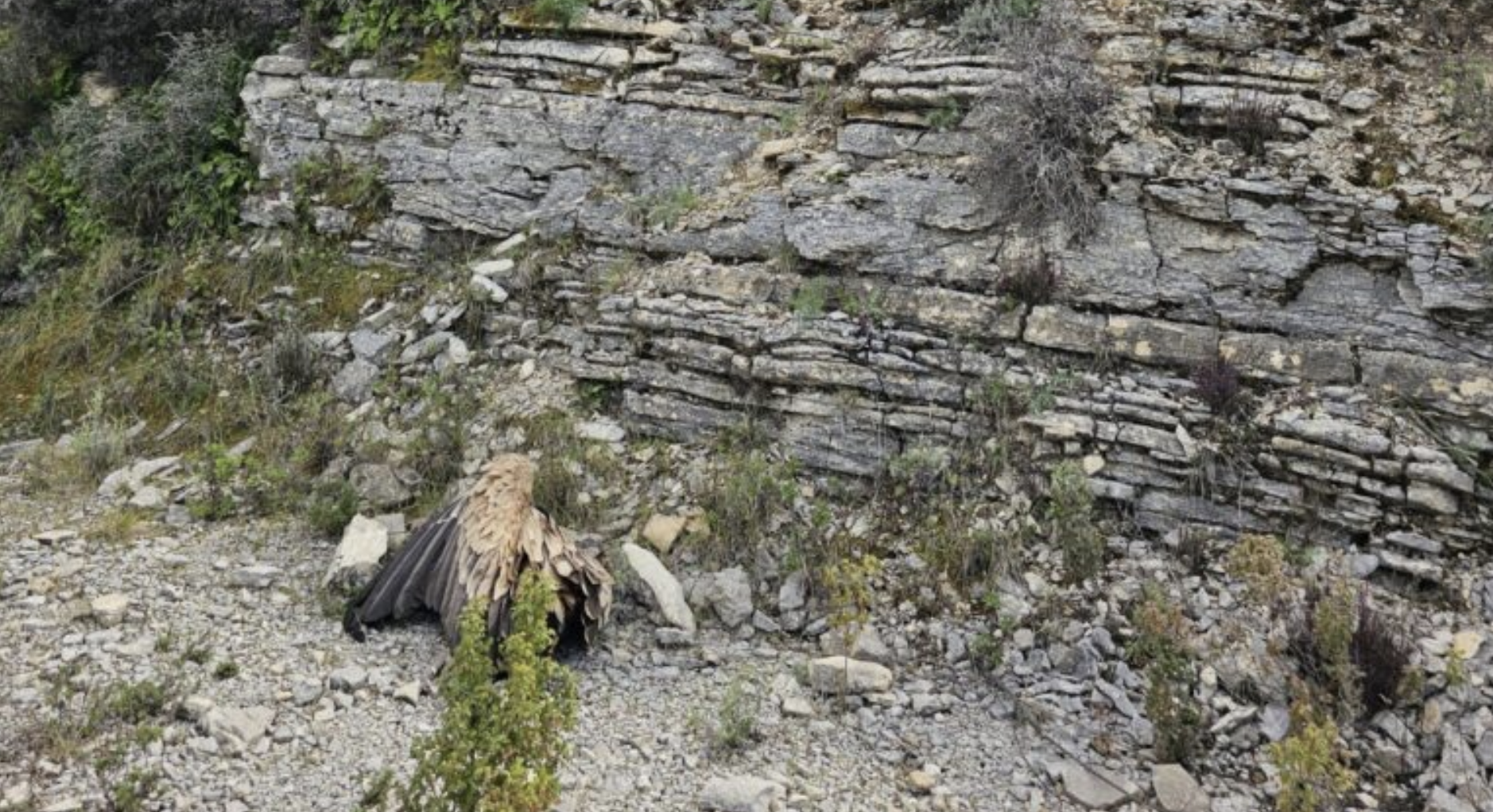
In a troubling repeat incident, electrocution has claimed the lives of two more Griffon Vultures (Gyps fulvus) in Cyprus, at the same electricity poles where another vulture met a similar fate two years earlier. Despite prior warnings, the competent authority failed to safeguard the deadly poles after the initial fatality. This negligence has continued to pose a lethal threat to the critically endangered Griffon Vulture population. The question now remains: will the authorities implement the necessary measures to prevent further tragic losses?
Electrocution incidents a serious threat to vultures




More vultures have fallen victim to lethal poles of the Electricity Authority of Cyprus (EAC) in recent weeks, despite warnings and alerts from experts. On Saturday, 5 May 2024, two Griffon Vultures died from electrocution on medium voltage overhead network poles of the EAC that power an antenna, in the area between Kelokedara and Salamiou in Cyprus.
In April 2022, at the exact same spot, Nepheli, another Griffon Vulture died from electrocution. This vulture, rescued from the beach and rehabilitated by the Game and Fauna Service in 2019, was equipped with a GPS, provided by the Vulture Conservation Foundation, ahead of her release back to the wild. The electrocution incident in 2022 took its life just a few months before turning three years old, marking a significant loss, especially because it had the potential to breed within a couple of years and help boost the vulture population.



In the same area in 2018, another vulture died after colliding with an overhead line. These specific uninsulated poles, located in the core territory of the Griffon Vulture, consistently prove to be a death trap for this critically endangered and protected species.
The danger of uninsulated electricity poles in Cyprus
Insulating poles or replacing them with poles of another design that prevents bird electrocution are simple measures taken in many European and other countries, allowing the coexistence of the power network with wildlife. It is particularly disappointing that these deaths could have been avoided if these poles had been insulated in 2022 when the EAC was informed about the danger of these specific poles after the first vulture’s death. Although the EAC has shown a willingness to insulate the poles, and although there has been a relevant budget available from the Game and Fauna Service for four years, this procrastination and negligence led to the electrocution death of two more vultures, which is a big loss equating to significant ecological damage.
Missed opportunities for prevention
Given that vultures often pass through this specific point, it is only a matter of time before more losses occur due to electrocution on these poles, which vultures frequently use for resting. The two deaths constitute a significant loss for the very small vulture population, which now numbers 27 birds, at a time when significant European and national resources are being spent to recover the species. Both collisions and electrocutions in the electric power transmission network affect the conservation status of both the Griffon Vulture and the Bonelli’s Eagle (Aquila fasciata) – species with strict protection status under national and European legislation.
Electrocution and collision second biggest threat to Cyprus’ vultures

Data from satellite transmitters carried by Griffon Vultures and Bonelli’s Eagles in Cyprus show that collision with overhead lines and electrocution with electricity poles are the second leading cause of mortality for the Griffon Vulture and the third cause for the Bonelli’s Eagle. Within a span of two years, five vultures have died due to electricity infrastructure and since 2018, nine eagles have been lost due to collision and/or electrocution. Naturally, these numbers most likely underestimate the actual levels of mortality from these causes, as not all birds carry satellite transmitters and the victims are not always located. Additionally, several other bird species such as Cranes, Stone-curlews, Eleonora’s Falcons, and Harriers, as well as smaller species, have been found dead from collision or electrocution.
Legal obligations for conservation measures
Cyprus, as an EU member state and based on national and European legislation, has an obligation to implement measures to reduce the mortality of the Griffon Vulture and Bonelli’s Eagle. Within the framework of two European programmes (“LIFE with Vultures CY” and “LIFE Bonelli eastMed“), the Game and Fauna Service and BirdLife Cyprus as implementing bodies of these programmes, have secured significant funds amounting to 150 thousand euros from national, private, and European resources for marking high-voltage overhead lines and insulating pylons and poles and the subsequent reduction of risk impacts on strictly protected species. However, these measures have not only not been fully implemented yet, but on the contrary, there is a great delay in their implementation. The situation needs to be addressed immediately, and the EAC, under the direction of the Game and Fauna Service, must act immediately to insulate all poles identified as high-risk for electrocution for the Bonelli’s Eagle and the Griffon Vulture, as well as to mark high-voltage overhead lines with a high collision risk for the Griffon Vulture.
The Game and Fauna Service, Birdlife Cyprus, Terra Cypria, and the Vulture Conservation Foundation, as already emphasized in a previous announcement in 2022, consider it imperative that these discussions with the EAC become actions before we need to collect more dead birds from the countryside. This delay now undermines the intensive and costly efforts that have been made in recent years for the conservation of the Griffon Vulture and the Bonelli’s Eagle in Cyprus.
The LIFE with Vultures project

LIFE with Vultures is a targeted conservation project to protect the Griffon Vulture in Cyprus. In this four-year endeavour (2019-2023), BirdLife Cyprus, the Game and Fauna Service, Terra Cypria – The Cyprus Conservation Foundation and the Vulture Conservation Foundation have joined forces to tackle the main threats facing the Griffon Vulture and prevent Cyprus’ most threatened bird of prey from going extinct. The project has a 1,375,861 Euro budget and is co-funded (60%) by the EU’s LIFE Programme.




